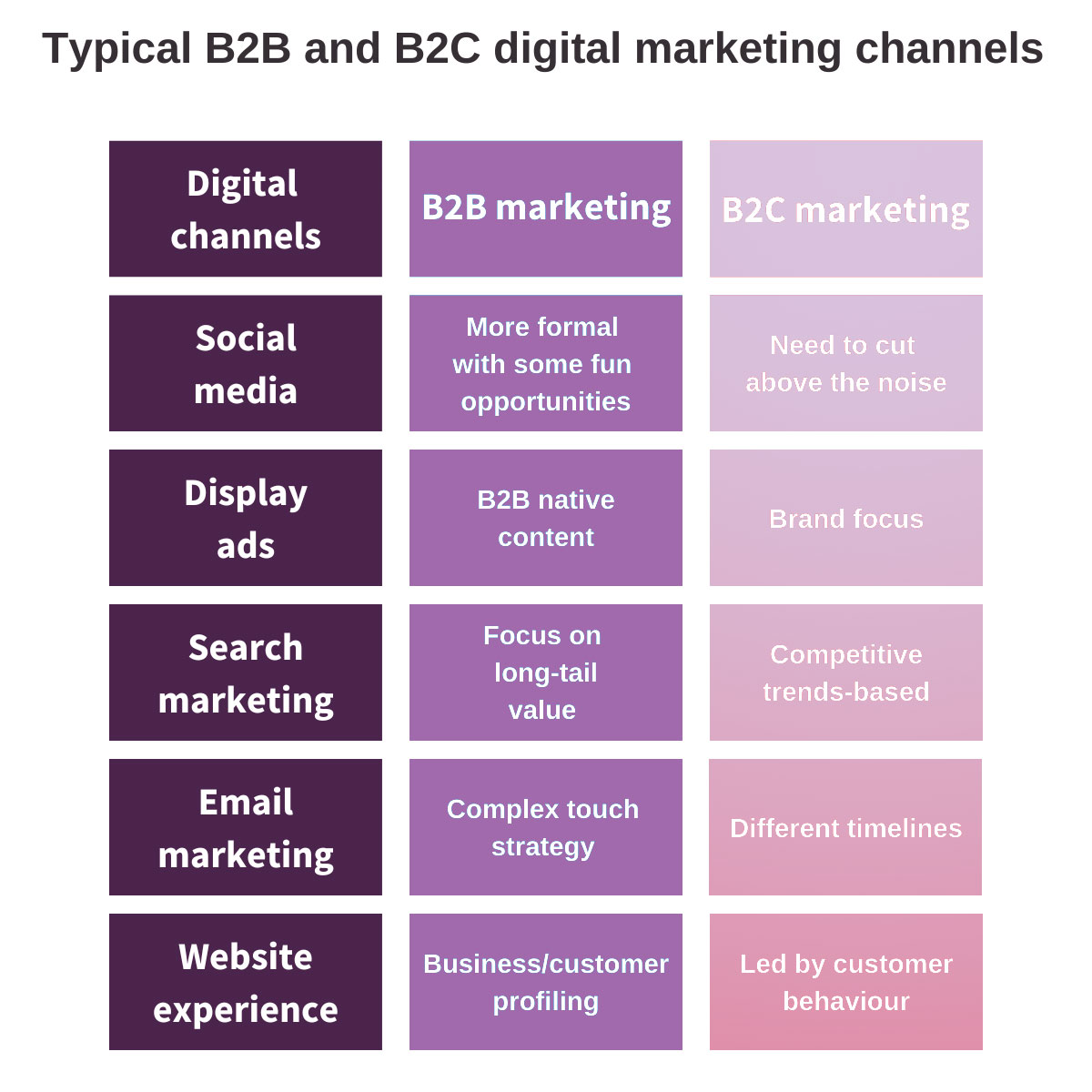
Does Affiliate Marketing Work For B2B?
Are you looking to increase your business-to-business (B2B) sales? If so, affiliate marketing should be part of your strategy. Affiliate marketing is a powerful way to drive leads and boost revenue for B2B businesses. This article will explain why it’s an effective solution and how it can help you maximize your profits.
As an affiliate marketing expert, I’ve seen firsthand the positive impact this type of digital marketing has had on my client’s bottom line. With its cost-effective approach and ability to reach target audiences quickly, affiliate programs are becoming increasingly popular with B2B companies. By leveraging affiliates who already have established relationships with potential customers, brands can get their products or services in front of relevant people without wasting time or money on ineffective marketing strategies.
In this article, we’ll explore the effectiveness of affiliate marketing for B2B organizations and discuss ways they can use it to generate more leads and close more deals. We’ll also look at some common challenges associated with running successful campaigns and provide practical tips for overcoming them. Let’s dive into what makes affiliate marketing such a great fit for B2B companies!
Overview Of Affiliate Marketing
Affiliate marketing is an effective way for businesses to increase their reach and generate sales. It involves connecting a company with affiliates who will promote its products or services in exchange for commissions. The process is simple: the affiliate promotes the business’s offer on their website, blog, social media channels, or any other platform they can access. When customers click through from the affiliate’s site and make a purchase, the affiliate receives a commission. B2B companies can take advantage of this cost-effective channel to expand their customer base and boost revenue.
With affiliate marketing, you get immediate exposure to potential customers who are already interested in your product or service offering. This helps target quality leads more quickly than traditional methods such as cold calling or email campaigns. Plus, it’s easy to track results so that you know which platforms are providing the highest return on investment (ROI). And because there’s no upfront costs associated with setting up an affiliate program, it’s low risk and could significantly improve your bottom line if done correctly.
By leveraging affiliates who understand what resonates with b2b buyers and how to reach them effectively, you can amplify your message across multiple online channels while minimizing wasted ad spend. Through thoughtful planning and analysis of performance data, you’ll be able to craft strategies that drive maximum ROI over time – all without increasing overhead costs too much.
Benefits Of Affiliate Marketing For B2B Companies
The benefits of affiliate marketing for B2B companies are undeniable. Affiliate marketing can be a potent tool to help you reach a larger target audience, increase brand awareness and drive sales. By leveraging the power of affiliates, you can promote products or services on multiple channels—including online, in print, or through email campaigns—without having to spend significant time and resources managing each campaign yourself.
Additionally, setting up an affiliate program is relatively simple and straightforward; once it’s set up, all you have to do is monitor progress. With tracking tools like coupon codes and link-building techniques available at your disposal, it’s easy to see which strategies are working best for your company and make adjustments accordingly. And because affiliates often receive incentives such as cash rewards for successful conversions, they may also be more likely to push harder for higher quality leads that are more likely to result in completed purchases.
All in all, implementing an effective affiliate marketing strategy can provide tremendous value to any B2B business looking to grow its customer base and boost revenue. It comes with minimal upfront costs but offers plenty of potential returns if done correctly—making it well worth considering for any businesses seeking new ways to build their customer relationships and expand their reach.
Without regular monitoring and maintenance, any successful B2B affiliate program could quickly become outdated or ineffective due to changes in technology or consumer preferences. The key is being proactive about researching new opportunities as well as adjusting existing tactics accordingly – only then can businesses truly maximize their ROI potential using this type of channel.
Strategies To Maximize Results
It’s clear that B2B affiliate marketing presents a number of challenges. But with the right approach, these can be overcome, and businesses can take advantage of this powerful form of digital advertising. In order to maximize results from your B2B affiliate program, there are certain strategies you should consider.
First off, it’s important to ensure you have a solid foundation in place before launching an affiliate program. This includes developing target personas for potential affiliates, setting up tracking links and analytics tools, as well as establishing a commission structure that incentivizes quality performance by partners. Once your fundamentals are established, then you can focus on recruiting affiliates who will help promote your products or services to their audience. It’s also essential to provide ongoing support and guidance so they remain engaged and motivated over time.
Additionally, when selecting an affiliate network provider, make sure they offer features such as fraud protection, real-time reporting capabilities, mobile optimization options, and referral fee management solutions – all of which will help simplify the process and streamline operations while helping optimize the results of the partnership.
With careful planning and execution combined with the appropriate technology infrastructure in place, B2B organizations can successfully launch effective campaigns through affiliate marketing programs that deliver superior ROI over other forms of online marketing channels.

Measuring Performance Of B2b Affiliate Programs
Measuring the performance of B2B affiliate programs is essential to their success. The key metric that should be monitored is conversion rate – this determines how many visitors are successfully converted into customers or clients. It’s important to have a clear understanding of which campaigns, channels, and partners are driving conversions so you can optimize your efforts accordingly.
Secondly, tracking ROI (return on investment) helps in gauging the efficiency of an affiliate program. This combines sales generated with the cost associated with recruitment and management costs to find out if it’s worth continuing with a particular campaign or not. Knowing which affiliates are providing the best returns on investments assists companies in making better decisions about the budget allocation for future campaigns.
Finally, customer lifetime value can also give insights into the effectiveness of an affiliate program as well as its long-term potential. Companies want to ensure they’re recruiting affiliates who bring in reliable revenue over time rather than just one-off purchases from new customers. By measuring CLV (customer lifetime value), businesses can see whether or not they’re getting good value from their partnerships over time.
Conclusion
Affiliate marketing can be a powerful tool for B2B companies looking to expand their reach and increase sales. When done right, it offers many benefits, such as access to new customers, increased website traffic, and improved brand recognition.
However, the success of any affiliate program depends on its implementation, and there are certain challenges that must be addressed. It’s important to have an understanding of your target audience, make sure you are offering relevant products or services, and create strategies to maximize results from affiliates. Finally, measuring performance is essential in order to track progress and ensure that goals are being met.
In conclusion, with careful consideration given to all aspects of an affiliate program, B2B businesses can achieve great success through this marketing strategy. With the help of experienced professionals who understand how best to leverage affiliate programs for maximum benefit, organizations can capitalize on the potential rewards offered by this form of promotion.
Table of contents
Related articles

Does Affiliate Marketing Work For B2B?
Are you looking to increase your business-to-business (B2B) sales? If so, affiliate marketing should be part of your strategy. Affiliate marketing is a powerful way to drive leads and boost revenue for B2B businesses. This article will explain why it’s an effective solution and how it can help you maximize your profits.
As an affiliate marketing expert, I’ve seen firsthand the positive impact this type of digital marketing has had on my client’s bottom line. With its cost-effective approach and ability to reach target audiences quickly, affiliate programs are becoming increasingly popular with B2B companies. By leveraging affiliates who already have established relationships with potential customers, brands can get their products or services in front of relevant people without wasting time or money on ineffective marketing strategies.
In this article, we’ll explore the effectiveness of affiliate marketing for B2B organizations and discuss ways they can use it to generate more leads and close more deals. We’ll also look at some common challenges associated with running successful campaigns and provide practical tips for overcoming them. Let’s dive into what makes affiliate marketing such a great fit for B2B companies!
Overview Of Affiliate Marketing
Affiliate marketing is an effective way for businesses to increase their reach and generate sales. It involves connecting a company with affiliates who will promote its products or services in exchange for commissions. The process is simple: the affiliate promotes the business’s offer on their website, blog, social media channels, or any other platform they can access. When customers click through from the affiliate’s site and make a purchase, the affiliate receives a commission. B2B companies can take advantage of this cost-effective channel to expand their customer base and boost revenue.
With affiliate marketing, you get immediate exposure to potential customers who are already interested in your product or service offering. This helps target quality leads more quickly than traditional methods such as cold calling or email campaigns. Plus, it’s easy to track results so that you know which platforms are providing the highest return on investment (ROI). And because there’s no upfront costs associated with setting up an affiliate program, it’s low risk and could significantly improve your bottom line if done correctly.
By leveraging affiliates who understand what resonates with b2b buyers and how to reach them effectively, you can amplify your message across multiple online channels while minimizing wasted ad spend. Through thoughtful planning and analysis of performance data, you’ll be able to craft strategies that drive maximum ROI over time – all without increasing overhead costs too much.
Benefits Of Affiliate Marketing For B2B Companies
The benefits of affiliate marketing for B2B companies are undeniable. Affiliate marketing can be a potent tool to help you reach a larger target audience, increase brand awareness and drive sales. By leveraging the power of affiliates, you can promote products or services on multiple channels—including online, in print, or through email campaigns—without having to spend significant time and resources managing each campaign yourself.
Additionally, setting up an affiliate program is relatively simple and straightforward; once it’s set up, all you have to do is monitor progress. With tracking tools like coupon codes and link-building techniques available at your disposal, it’s easy to see which strategies are working best for your company and make adjustments accordingly. And because affiliates often receive incentives such as cash rewards for successful conversions, they may also be more likely to push harder for higher quality leads that are more likely to result in completed purchases.
All in all, implementing an effective affiliate marketing strategy can provide tremendous value to any B2B business looking to grow its customer base and boost revenue. It comes with minimal upfront costs but offers plenty of potential returns if done correctly—making it well worth considering for any businesses seeking new ways to build their customer relationships and expand their reach.
Without regular monitoring and maintenance, any successful B2B affiliate program could quickly become outdated or ineffective due to changes in technology or consumer preferences. The key is being proactive about researching new opportunities as well as adjusting existing tactics accordingly – only then can businesses truly maximize their ROI potential using this type of channel.
Strategies To Maximize Results
It’s clear that B2B affiliate marketing presents a number of challenges. But with the right approach, these can be overcome, and businesses can take advantage of this powerful form of digital advertising. In order to maximize results from your B2B affiliate program, there are certain strategies you should consider.
First off, it’s important to ensure you have a solid foundation in place before launching an affiliate program. This includes developing target personas for potential affiliates, setting up tracking links and analytics tools, as well as establishing a commission structure that incentivizes quality performance by partners. Once your fundamentals are established, then you can focus on recruiting affiliates who will help promote your products or services to their audience. It’s also essential to provide ongoing support and guidance so they remain engaged and motivated over time.
Additionally, when selecting an affiliate network provider, make sure they offer features such as fraud protection, real-time reporting capabilities, mobile optimization options, and referral fee management solutions – all of which will help simplify the process and streamline operations while helping optimize the results of the partnership.
With careful planning and execution combined with the appropriate technology infrastructure in place, B2B organizations can successfully launch effective campaigns through affiliate marketing programs that deliver superior ROI over other forms of online marketing channels.

Measuring Performance Of B2b Affiliate Programs
Measuring the performance of B2B affiliate programs is essential to their success. The key metric that should be monitored is conversion rate – this determines how many visitors are successfully converted into customers or clients. It’s important to have a clear understanding of which campaigns, channels, and partners are driving conversions so you can optimize your efforts accordingly.
Secondly, tracking ROI (return on investment) helps in gauging the efficiency of an affiliate program. This combines sales generated with the cost associated with recruitment and management costs to find out if it’s worth continuing with a particular campaign or not. Knowing which affiliates are providing the best returns on investments assists companies in making better decisions about the budget allocation for future campaigns.
Finally, customer lifetime value can also give insights into the effectiveness of an affiliate program as well as its long-term potential. Companies want to ensure they’re recruiting affiliates who bring in reliable revenue over time rather than just one-off purchases from new customers. By measuring CLV (customer lifetime value), businesses can see whether or not they’re getting good value from their partnerships over time.
Conclusion
Affiliate marketing can be a powerful tool for B2B companies looking to expand their reach and increase sales. When done right, it offers many benefits, such as access to new customers, increased website traffic, and improved brand recognition.
However, the success of any affiliate program depends on its implementation, and there are certain challenges that must be addressed. It’s important to have an understanding of your target audience, make sure you are offering relevant products or services, and create strategies to maximize results from affiliates. Finally, measuring performance is essential in order to track progress and ensure that goals are being met.
In conclusion, with careful consideration given to all aspects of an affiliate program, B2B businesses can achieve great success through this marketing strategy. With the help of experienced professionals who understand how best to leverage affiliate programs for maximum benefit, organizations can capitalize on the potential rewards offered by this form of promotion.




